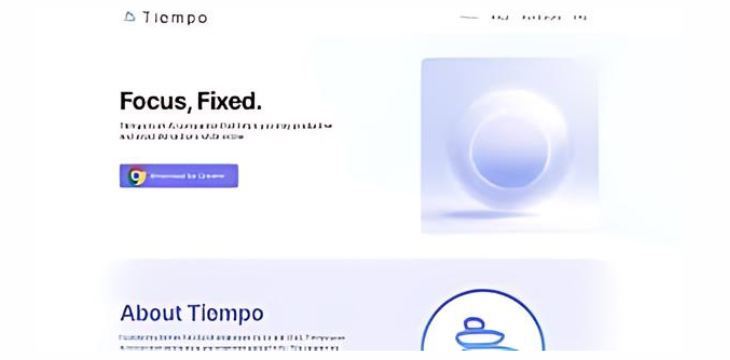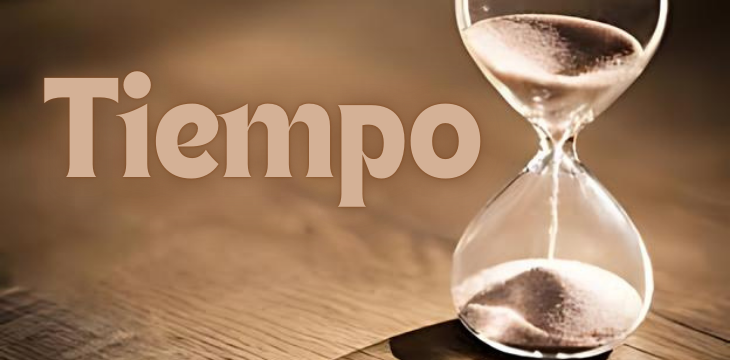Time—it’s the invisible thread that stitches together the fabric of our lives. From the tick-tock of a clock to the rhythm of our heartbeat, tiempo (Spanish for “time”) is ever-present, yet often elusive. It can feel like a race against the clock or a slow dance through the ages, depending on how we perceive it. Ever wondered how tiempo affects not just our daily routines, but also our memories, cultures, and even the natural world? Buckle up, because we’re about to embark on a journey through the fascinating world of tiempo!
The Essence of Tiempo: More Than Just Clocks and Calendars
The Fluidity of Time
Ever noticed how time seems to stretch and contract? When you’re having a blast with friends, the hours slip by like sand through your fingers. On the other hand, waiting for something eagerly can make seconds feel like an eternity. This phenomenon isn’t just in your head; it’s a well-documented psychological quirk.
- Time Flies When You’re Having Fun: When engaged in enjoyable activities, our brain’s attention is diverted, making time seem to pass quicker.
- The Slow-Mo Effect of Waiting: Anticipation can make time drag because we’re constantly monitoring its passage.
Tiempo and Memory: A Complex Relationship

Memory and tiempo are intricately linked. Our recollection of past events can be influenced by the way we experience time.
- Nostalgia: Those golden days of yesteryear often seem more vivid and emotionally charged because of how we perceive tiempo’s.
- Time’s Illusion: Sometimes, our memories can play tricks on us, making events seem closer or farther away than they actually are.
The Cultural Tapestry of Tiempo
Different cultures have unique ways of understanding and measuring tiempo.
- Western Time: In many Western cultures, time is often seen as linear and precise—minutes, hours, and deadlines rule the day.
- Eastern Perspectives: In contrast, many Eastern philosophies view tiempo as cyclical, with a focus on natural rhythms and spiritual practices.
Tiempo in Nature: The Dance of the Seasons
Natural Rhythms and Biological Clocks
Nature has its own way of keeping tiempo. Ever noticed how animals follow certain patterns throughout the year? From the migration of birds to the hibernation of bears, these natural rhythms are a testament to the intrinsic link between tiempo and nature.
- Circadian Rhythms: These are 24-hour cycles that govern sleep and other bodily functions in humans and animals alike.
- Seasonal Changes: Plants and animals adapt to seasonal changes, which are a direct reflection of nature’s passage of tiempo.
The Influence of Lunar Cycles
The moon’s phases have fascinated humanity for millennia. From ancient calendars to modern astronomy, the lunar cycles play a significant role in how we perceive tiempo.
- Full Moon: Often associated with heightened emotions and events.
- New Moon: A time for new beginnings and reflection.
Tiempo in Technology: The Modern Shift

The Age of Instantaneous Time
In today’s world, technology has dramatically altered our perception of tiempo. With the advent of smartphones and instant messaging, it feels like we’re living in a perpetual now.
- Real-Time Communication: Whether it’s social media updates or instant emails, our expectation for immediacy has skyrocketed.
- Digital Clocks: With screens everywhere, we’re constantly aware of the exact moment.
The Challenge of Time Management
As technology speeds up the pace of life, managing tiempo effectively has become a crucial skill. Balancing work, leisure, and personal commitments can sometimes feel like juggling a dozen balls in the air.
- Productivity Tools: From to-do lists to calendar apps, there’s no shortage of tools designed to help us make the most of our tiempo.
- Mindfulness Practices: Techniques such as meditation can help us slow down and savor the moment.
FAQs About Tiempo

Q: How does tiempo affect our perception of events?
A: Tiempo can make events feel either closer or more distant, depending on our emotional state and how we experience the passage of time.
Q: Why does time seem to go faster as we age?
A: As we get older, our perception of time often changes because each year represents a smaller fraction of our life. Familiarity with routines can also make time seem to pass more quickly.
Q: How can I manage my tiempo better in a fast-paced world?
A: Prioritizing tasks, setting clear goals, and using time management tools can help you balance your commitments more effectively. Additionally, mindfulness practices can improve your awareness of the present moment.
Conclusion
Tiempo is more than just a measurement—it’s a dynamic, ever-shifting force that influences every aspect of our lives. From the fleeting seconds of joy to the slow, contemplative moments of solitude, tiempo’s shapes our experiences in profound ways. As we navigate through the intricate dance of days and nights, let’s embrace the rhythms of tiempo’s, savoring every moment and appreciating the beautiful complexity it brings to our lives.

